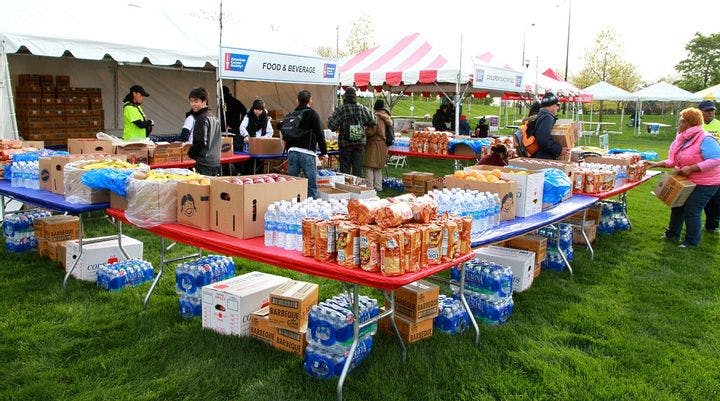Fall 2008
Labors of Love
– Darcy Courteau
What makes people volunteer to help others? Reviewer Darcy Courteau tries to find some answers in a study by two sociologists.
Ask anyone who has done much volunteering and you are bound to hear—along with heartwarming stories of teaching a kid to read or saving a church slated for demolition—tales of abuse. A friend recalls the Saturday she sacrificed to help build a playground at a New Orleans community center. She arrived to find the well-heeled volunteers who had donated the space standing around complaining into their cell phones about the heat; she was handed a shovel. Six palm-blistering hours later, she “accidentally” tossed mulch on a slacker and left. “I just thought if we’re all in this together, let’s be in this together,” she said.
But it is our very self-reliance (and a distrust of government), sociologists Marc A. Musick and John Wilson write in Volunteers, that spurs Americans to donate their time. Bootstraps firmly in hand, we have the highest volunteer rate in the world—one study estimates that nearly two-thirds of Americans volunteer. Because such labor is motivated by ideals rather than cash, tapping this resource can be a delicate challenge. In a giant compendium—of other social scientists’ studies as well as analyses of survey data collected over two decades—Musick and Wilson set out to paint an exhaustive portrait of modern volunteers, and “help practitioners better recruit, train, motivate, and retain volunteers.”
The book examines volunteers’ motivations and backgrounds—including race, gender, and socioeconomic resources—and addresses subjects such as recruitment and types of service various groups favor. But the authors’ sweeping approach encounters a not-uncommon problem: Many of the studies mentioned contradict one another. So we are left with forehead slappers such as “In the opinion of many scholars, organizations will recruit volunteers only if they appeal to their values and beliefs” and “There is quite convincing evidence that volunteers are more empathic people than non-volunteers.” You don’t say.
Many recruiters won’t be surprised to learn that their best volunteer prospects are affluent, white, churchgoing women. (While women do not contribute more hours than men, they volunteer at a higher rate.) To be fair, people in each of these categories are the most likely to be asked—41 percent of white Americans, for instance, have been asked to volunteer, compared with 33 percent of blacks, and nearly two-thirds of Americans with household incomes over $75,000 are asked compared with one-third of those earning less than $25,000. Being asked is a strong predictor of who volunteers.
From amid the obvious conclusions and the sociological jargon, however, an engaging narrative begins to emerge, of Americans’—especially American women’s—relationship to labor. “In capitalist societies,” the authors write, “volunteers are often admired as people, but their work is devalued. We tend to assume that if a job is really worth doing, it will be paid for.” Often, the volunteer work that women do is “society’s ‘dirty work,’” similar to household duties—caring for children and the elderly, preparing meals, bookkeeping. Men tend to have “more desirable” leadership roles in the public domain: coach, firefighter, board member. This imbalance led many in the feminist movement of the 1970s to resist volunteering. Activist Doris Gold put it bluntly: “Voluntarism is clearly exploitative—in its implication that social justice for all classes can be achieved through the moral ‘service’ of some who are expendable, albeit out of choice.” From this perspective, our nation of do-it-yourselfers is a place where we are emphatically not all in this together.
Reading Volunteers, I wondered what would happen if Americans stopped being quite so gung-ho about signing up to help out. What if women took a break from the “dirty work,” and instead people were paid to do it? The warm-fuzzies sector might shrink, but the resulting jobs would allow those who couldn’t afford to volunteer to have a bigger role in helping others, even as—per the American way—they helped themselves.
* * *
Darcy Courteau, a writer living in New Orleans, has spent thousands of hours volunteering in education programs in the United States and India.
Reviewed: Volunteers: A Social Profile by Marc A. Musick and John Wilson, Indiana University Press, 663 pp, 2007.
Photo courtesy of Flickr/Pavel Trebukov
